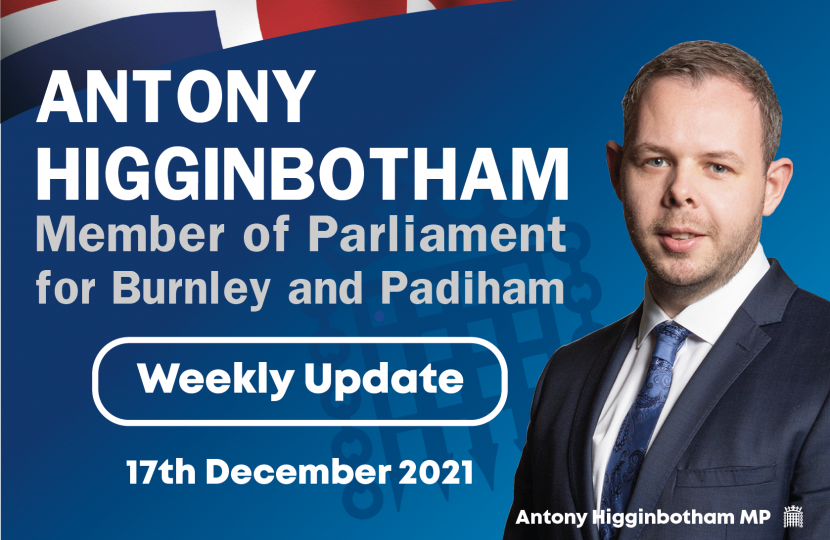
2021 has been a tough year – possibly tougher than even 2020. When we came into the year the Alpha variant of Covid-19 that was first discovered in Kent, was spreading fast. It brought with it a return to serious non-pharmaceutical interventions like business closures, children being asked to learn remotely, as well as the need to limit household mixing over Christmas. But we also had a shimmer of optimism with the first vaccine having been given in the UK and the rollout ramping up to become one of the fastest in the world.
And in March the Prime Minister announced a route out of such closures, allowing our lives to go back to normal as we relied increasingly on the vaccine to keep us safe. Despite some bumps in the road, and the spread of the Delta variant, we have stuck to that plan. As case rates have remained stubbornly high, the vaccine has kept hospitalisations down. That is what learning to live with Covid-19 means – accepting there will be cases, just as there is with flu and other illnesses, but limiting the worst impacts through science and medicine.
For months now scientists around the world have been working to develop a vaccine capable of dealing with the different variants we will see emerging, at the same level of efficacy as the current jabs being used. Whilst they are making great progress on this, with confidence high that it will be possible, we’re not there yet.
The data on Omicron is developing daily, as is always the case with a new strain, but as Professor Chris Whitty has said, it points to a much more infectious, though possibly milder disease. And to understand the impact of any disease you have to look at both those metrics together. I, like everyone else, saw the data on how mild the variant seemed to be and began by shrugging it off – reluctant to accept it could knock us off course. But the infectiousness is what causes the concern. Even if only a small percentage of people got seriously ill from this variant, if the overall numbers of infections is high, that small percentage is still a very large number.
Information from Pfizer and others is promising though. It shows that a booster jab can bring the vaccine effectiveness back up to a good level – preventing serious illness and the hospitalisations that would bring.
That’s why, with great reluctance, I accepted the need for some limited but necessary measures over the next few weeks. They will allow us to limit the spread and seriousness of the disease as data on the variant increases, and boosters are delivered.
The most contentious of the measures was the need for people to take a lateral flow test for large events, with an exemption for those who are vaccinated. This is by no means a perfect measure – there are no perfect measures when it comes to managing Covid-19 – but it is a measure which will make a difference. The rapid tests will help to mitigate the risk of those who might have Covid-19 of spreading it by going out, and with those who are vaccinated having some protection, we also keep pressure off the NHS as far as possible.
And this remains an interim measure to manage the risk whilst boosters are being administered. Unlike previous Covid-19 measures which ran for many months as the risk timeline was longer, these latest measures will be reviewed at the start of January and will automatically expire at the end of January.
There has been much by way of anger, frustration, and misinformation about what Parliament approved this week. It hasn’t been helped by those – in the media and elsewhere – who have referred to measures like ‘vaccine passports’. No such measure exists. I was very clear to Ministers throughout the year that I would not accept a two-tier society where those who are vaccinated have more rights, or can visit more venues, than those who are not. That’s why the inclusion of a negative rapid test is important, and why the Secretary of State for Health confirmed in the House of Commons that this would never be removed.
We must live with Covid-19. It is not going anywhere. But as we saw in countries like Taiwan, Japan and South Korea at the very beginning of the pandemic, testing is a way to limit spread whilst vaccines are developed and deployed. That is what we must do now with the boosters.
So, as you visit family and friends this Christmas, please consider taking a test and getting your vaccine and booster dose.

